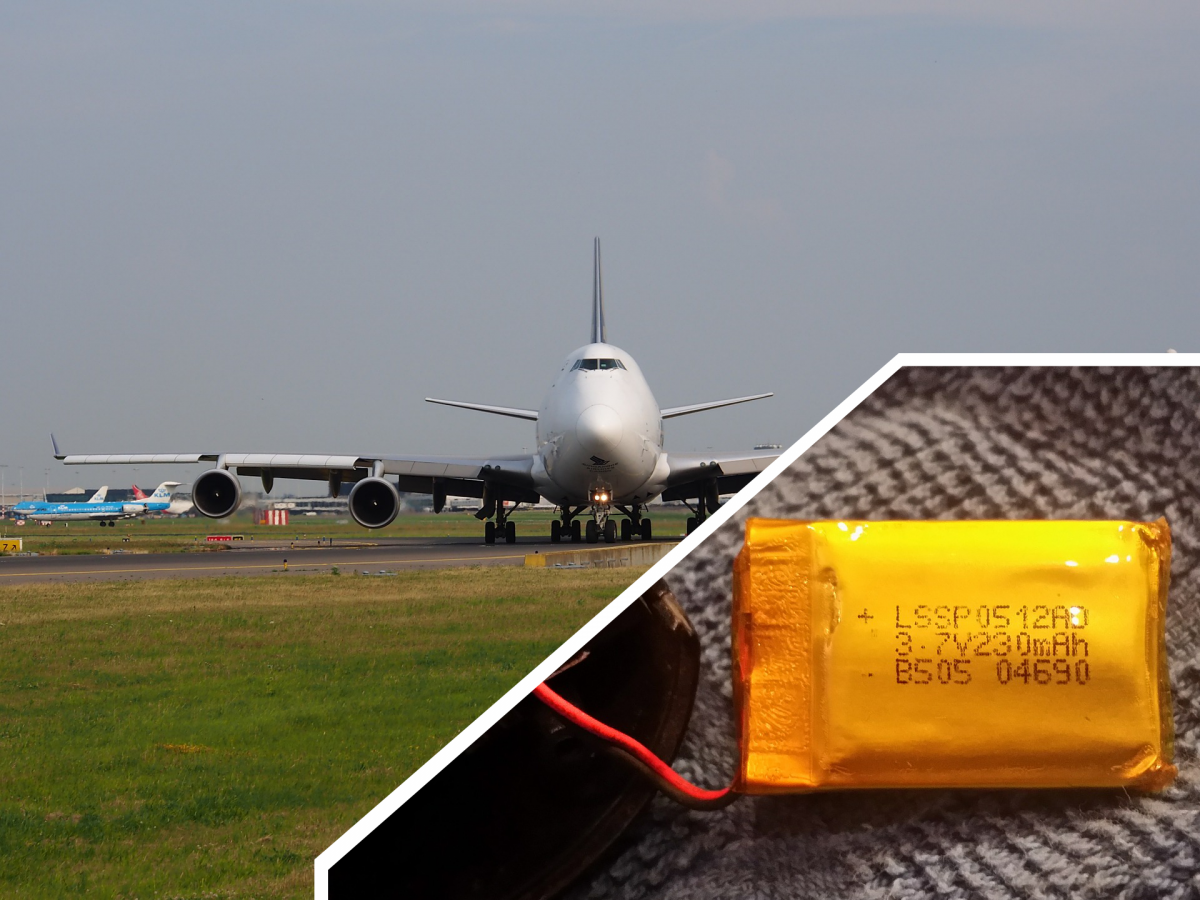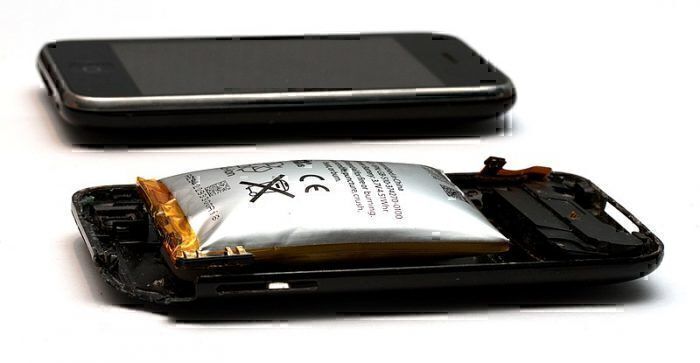The risk posed by rouge shipments of poorly made or uncertified lithium batteries is increasing year on year. As the market floods with dangerous products, shippers are finding new and clever ways to conceal the shipment of these fire-prone devices. IATA highlights the problem and announces a new campaign to tackle the issue.
Fire or explosion
At yesterday’s International Air Transport Association (IATA) Global Media Day event, Nick Careen, IATA’s Senior Vice President, Airport, Passenger, Cargo and Security, raised the issue of lithium batteries on board aircraft.
According to Mr. Careen, the market for lithium-ion batteries is growing by some 22% every year. Pretty much every passenger who gets on an aircraft will have a lithium-ion battery of some sort about their person, often several.
Hand in hand with the rising demand for lithium-ion batteries comes an increase in the number of rogue shippers introducing fake or dangerous batteries to the marketplace. These batteries pose a dual threat to aviation.
Firstly, they may be misdeclared or undeclared in cargo shipments. Batteries which are poorly manufactured or not subjected to mandatory safety testing have the potential to catch fire or even explode. When fake batteries are misdeclared as real ones, or potentially not declared at all, they could end up in the cargo hold of passenger aircraft.
Secondly, as these batteries make their way into the consumer market, they continue to pose a threat to the safety of aviation. Housed in innocuous devices such as laptops, smartphones and cameras, fake batteries still carry a risk of fire or explosion.
Although much is being done to ensure all items with lithium batteries are kept in cabin baggage, where passengers and flight attendants are more likely to notice and be able to deal with any fire, the lack of screening for lithium batteries in hold baggage means there is still a risk they could end up in the hold.
Why are fake batteries an issue?
Lithium batteries are in big demand. So many products today require lithium batteries, from drones to cameras to medical equipment and more. As such, the market for manufacturing lithium batteries is also huge.
Dave Brennan, IATA’s Assistant Director of Cargo Safety and Standards commented on this, saying,
“China is a massive manufacturer of lithium batteries, and a big shipper too. But they’re not the only ones. Manufacture of rogue batteries happens here in Europe too. Where there’s demand, there are people who will look to satisfy that and take shortcuts in the process.”
Brennan noted that there are two types of rogue shippers of batteries; those who don’t know, and those who know but don’t care.
The first type is the shipper who is not a traditional shipper of dangerous goods. Perhaps they’ve launched a new product that contains a lithium battery, but are not aware of the regulations surrounding this type of material. The shipment gets misdeclared and batteries end up posing a threat.
The other type is the one that knows the rules but, for whatever reason, chooses to conceal the shipment deliberately. Whatever the reason for the deception, the outcome is the same; a risk to aircraft and potentially to the passengers on board.
A new IATA campaign
In response to the rising threat of rogue lithium-ion batteries on board aircraft, IATA has launched a new campaign in an attempt to crack down on the problems of dangerous goods. The campaign includes three specific initiative:
- An incident reporting and alert system for airlines, allowing real time information about dangerous goods incidents to be shared within the industry.
- Awareness campaign, including seminars targeting regions where compliance has been challenging, as well as an awareness program for customs authorities.
- Facilitation of a joined up industry approach, with support from ICAO, to adopt a cross domain approach to tackling this problem.
Nick Careen summed up the initiative saying,
“Dangerous goods, including lithium batteries, are safe to transport if managed according to international regulations and standards. But we are seeing an increase in the number of incidents in which rogue shippers are not complying. The industry is uniting to raise awareness of the need to comply. This includes the launching of an incident reporting tool so that information on rogue shippers is shared. And we are asking governments to get much tougher with fines and penalties,”
Of course, it’s not just IATA who are working to drive down the dangers posed by lithium batteries. In fact, back in 2016, IATA tasked SAE Aerospace with establishing a standard test for lithium batteries. However, this has proven challenging, and no result likely before the end of 2020.
In addition to this, a UN Subcommittee of Experts are developing a hazard-based approach to the classification of lithium batteries. IATA says there is a lot of testing being undertaken to identify the volatility of different types of batteries. However, this is unlikely to be ready until 2023.




